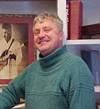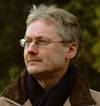Prof. Stephan Fuchs (Dept. of Sociology, University of Virginia, USA) |
Mo.
30.09.13
18:00-19:30
Lindenberg
Valkhofzaal
Ridderstraat 23
NL-6511TM Nijmegen
Free entry |  Alexander von Humboldt Lecture: Alexander von Humboldt Lecture:
‘Observing Observers’ Abstract: Science as a system and Society as a system mutually observe each other. Various kinds of observers draw different kinds of distinctions, from immune systems to metaphysics. The theory of observers considers how observers and their worlds co-emerge, and explains variations in modes of observing the world as rooted in differences in observers' constitutions and possibilities. |
Tue. 01.10.13 18:00-20:00 Cultuurcafé Mercatorpad 1 NL-6525HS Nijmegen
Free entry | Science Café with Prof. Stephan Fuchs Special guest: Prof. Kristof Van Assche (University of Alberta, CA) Theme: Reflexivity Moderator: Martijn Duineveld |
Wed. 02.10.13 10:45-13:30 Erasmuslaan 9 Room: 01.15
Free entry | Seminar with Prof. Stephan Fuchs with contributions by: - Joren Jacobs
- Freek de Haan
|
Prof. Michael Gunder (Dept. of Planning, University of Auckland, NZ) |
Mo. 21.10.13 18:00-19:30 Lindenberg Valkhofzaal Ridderstraat 23
NL-6511TM Nijmegen
Free entry |  Alexander von Humboldt Lecture: Alexander von Humboldt Lecture:
‘Spatial Planning’s Words of (Ideological) Power’ Abstract: Many of the key words we use in planning are actually ‘transcendental ideas’. That is, they are often desirable ideas whose resolution and even clear definition exist largely beyond current human experience and knowledge. At best, they are sublime objects of ideological aspiration. Accordingly, they are words of contested meaning that are generally constituted by multiple and diverse knowledge sets, all of which attempt to hegemonically define what the term should mean and how it can be best achieved. Yet, these definitions are inherently incomplete and their definition is never clear to those that use them. Further, because of their perceived importance and desirability, these key words are often used to provide a label to contextualise planning’s more important problems, especially for issues that we especially desire to solve. Indeed, spatial planning often makes these terms their ultimate objective, such as to be ‘sustainable’, ‘resilient’, ‘global competitive’, or in the case of my own city’s 2012 spatial plan – Auckland, New Zealand – ‘to be the most “liveable” city in the world’. Moreover, these spatial plans still largely replicate the strategic plans of traditional instrumental planning. Best means are still identified and deployed to achieve the spatial plan’s desired objectives, even if sometimes these plans are now applied to soft geographical spaces of fuzzy boundaries and governance, rather to clearly defined territories with elected and accountable politicians. Yet, rather than having the achievable objectives of planning’s traditional tame problems, such as the provision of adequate land to accommodate the projected need for an identified housing stock, these new spatial plans purport to resolve planning’s most wicked problems of place making. This is achieved by setting plan objectives as feel-good sublime objects of indefinable ideology aspiration: through becoming a sustainable, resilient, world-class, or liveable city – making the promise that our future settlements will be some kind of transcendental magical place! In my lecture I wish to explore these deployed core-planning concepts as words of ideological power. I wish to demonstrate how they help to constitute the knowledge sets of planning – scientific, or otherwise – and act as concepts of belief that help to constitute the identifications of planners, themselves. Moreover, at the same time, I hope to demonstrate how these concepts actually constitute a mystery to all that use them. Indeed, it is this shared belief in these mysterious concepts that largely constitutes the profession of planning. Further, I wish to explore how planning deploys these words as ‘magical’ words of power. For who could possibly not wish to live in a sustainable or resilient city, or indeed, in the most liveable city in the world? |
Tue. 22.10.13 18:00-20:00 Cultuurcafé Mercatorpad 1 NL-6525HS Nijmegen
Free entry | Science Café with Prof. Michael Gunder
Special guest: Prof. René ten Bos (Radboud University, Nijmegen)
Theme: Planning and Philosophy: the limits of planning and the limits of knowing Moderator: Henk-Jan Kooij |
Wed. 23.10.13 10:45-13:30 Thomas van Aquinostraat 2 Room: TvA 2.00.12
Free entry | Seminar with Prof. Michael Gunder with contributions by: |
Prof. Mike Hulme (Dept. of Geography, Kings College London, UK) |
Mo. 16.12.13 18:00-19:30 Lindenberg Valkhofzaal Ridderstraat 23
NL-6511TM Nijmegen
Free entry |  Alexander von Humboldt Lecture: Alexander von Humboldt Lecture:
‘Who Governs the Climate? Agency, knowledge and the limits of democracy’ Abstract: In this lecture I describe the changing historical relationship between 'science' (I prefer the broader term knowledge, or Wissenschaft) and society in the context of enduring cultural attempts to bring order to the disorderliness of climate. Spirits and divinities, God, the forces of nature have in turn each been understood as the ultimate agents of weather and climate. I bring this history up to the present day and examine the perplexing relationship between the Intergovernmental Panel on Climate Change (‘knowledge’) and the UN Framework Convention on Climate Change (‘agency’). I reflect on the paradox of our contemporary understanding of climate change: on the one hand scientific knowledge makes us the offer that, for the first time, climate is directly governable by human agency; and yet on the other hand our democratic institutions seem incapable of taking up this offer. This paradox is illustrated no more acutely than the case of putative climate geo-engineering, the idea that through technological manipulation of the skies and seas we can create a ‘thermostat’ for the planet. Despite many (implicit) claims to the contrary, and for the moment at least, climate remains ungovernable. |
Tue. 17.12.13 18:00-20:00 Cultuurcafé Mercatorpad 1 NL-6525HS Nijmegen
Free entry | Master Class with Prof. Robert Cervero about Special Guest: dr. Esther Turnhout (Wageningen University) Theme: Organising knowledge production for politics Moderator: Daan Boezeman |
Wed. 18.12.13 10:45-13:30 Thomas van Aquinostraat 3 Room: TvA 3.0.07
Free entry | Seminar with Prof. Mike Hulme with contributions by: - Daan Boezeman
- Pierre Olivier Garcia
|
Prof. David Seidl (Business Administration, University of Zurich, CH) |
Mo. 13.01.14 18:00-19:30 Lindenberg Valkhofzaal Ridderstraat 23
NL-6511TM
Free entry |  Alexander von Humboldt Lecture: Alexander von Humboldt Lecture:
‘Applied Science as (Productive) Misunderstanding’ Abstract: An ongoing and central concern of large parts of the social sciences is that their research lacks practical relevance. This concern is especially significant in the so called ‘applied sciences’. The relevance problem is mostly attributed to issues such as the use of jargon, inappropriate research questions, wrong incentives or an underdeveloped transfer infrastructure. It is often suggested that such ‘technical’ problems can be dealt with, for example, through appeals to scientists and through editorial policies of academic journals. However, such a view misses that the ‘relevance problem’ is so persistent and even appears to get worse despite increasing pressures and corresponding attempts to deal with it. The reasons for the relevance problem seem to be more fundamental and to be rooted in the logic of the social sciences themselves. This means that the common understanding of ‘applied science’ as offering solutions to practical problems needs to be reconsidered. In this talk I will elaborate on the logic of the social sciences and its relation to other spheres of society. Against this background I will discuss different notions of practical relevance and propose a re-conceptualization of ‘applied science’. The planning system has lurched from one set of political objectives to another throughout the last 100 years in response to changing socio-economic and environmental conditions, and as a political tool of governments. But politicians have believed that they can achieve win win scenarios – sustainable develop-ment in some countries is now a hollow sentiment. There are long term trends and drivers of change that are now much more difficult to analyse and address as countries become preoccupied with short term needs, and where economic growth remains the dominant problem. Politicians and planners are increasingly working within narrow disciplinary parameters and failing to take a synoptic view of policy impacts across related fields. As we embrace more pluralist and collaborative forms of democracy, who has the power to take long term nation-ally-significant planning decisions? Methodologically, we often lack the conceptual and analytical means to combine social science with science, and to take short term decisions within the context of long term scenario building and futures thinking. This talk considers long term socio-economic and environmental trends, and considers whether strategic spatial planning is fit for purpose. Calling for a new relationship between social science thinking and environmental science in the interests of our cities and regions, Professor Tewdwr-Jones sets out the case for a range of new concepts and techniques that provide the means to deliver sustainable development over the next 50 years, while also reconfiguring the role and position of urban planning. |
Tue. 14.01.14 18:00-20:00 Cultuurcafé Mercatorpad 1 NL-6525HS Nijmegen
Free entry | Science Café with Prof. David Seidl Special Guest: Prof. Kristina Lauche Theme: Engaged Scholarship Moderator: Joren Jacobs |
Wed.
15.01.14
10:45-13:30
Thomas van Aquinostraat 3 Room: TvA 3.0.07
Free entry | Seminar with Prof. David Seidl with contributions by: - Rinkse Wolters
- Daniela Patru
|